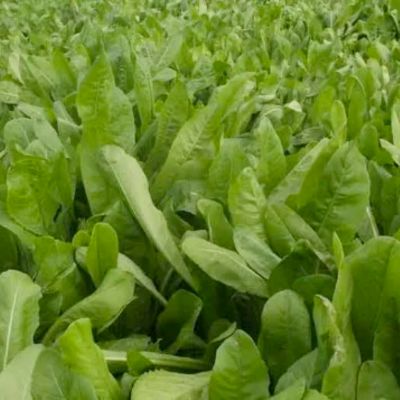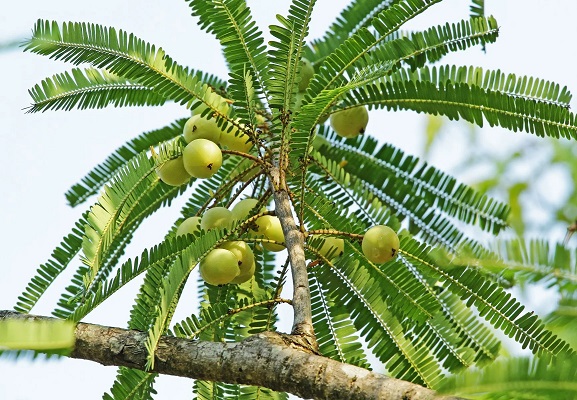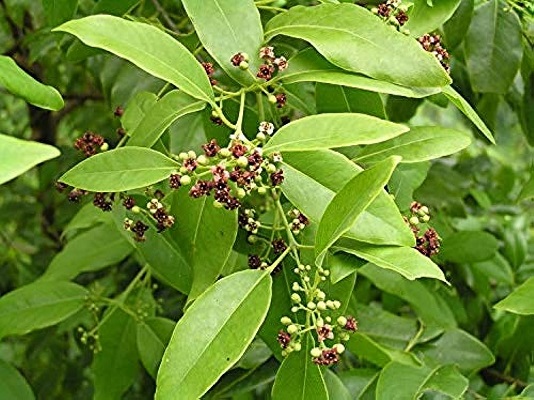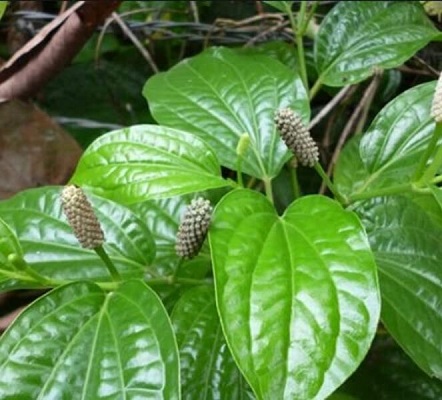On This Page
Amalaki (Phyllanthus emblica) – Uses & Benefits
Introduction
Amalaki, commonly known as “Indian gooseberry “ is one of the most significant herbs for therapeutic purposes in both Ayurveda and Allopathic fields. The name ‘Amalaki’ itself means that the plant can protect the body by subsiding the aggravated doshas and also indicates the sour taste of it’s fruits. Indian gooseberry is one of the most widely used herb owing to its high medicinal value. It is said to be the best medicinal herb for the treatment of Diabetes.
Amalaki has numerous therapeutic properties like immunomodulation, antioxidant, antiulcerogenic, anticarcinogenic, antimicrobial, and antiallergic, etc. Amalaki can be used in the effective treatment of diseases like Diabetes, Fever, Anaemia, Jaundice, Bleeding disorders, Hiccough, Arthritis, etc. The fruits of the plant have a strong RSO scavenging ability by which it can effectively inhibit UVB-induced photoaging in human skin fibroblasts. Dr. Gupta’s IAFA experts conducted studies on Amalaki to prove the hypolipidemic effect and found to be successful. The antidepressant activities of Gooseberry is also found to be useful for controlling psychic disorders. The aqueous extract of the plant shows antidepressant activity by inhibiting MAO-A and GABA. Due to the antimicrobial activities of the plant Amalaki, it is now widely used for the treatment of bacterial diseases.
Action of Amalaki (Phyllanthus emblica) in Allergies
As said earlier, Amalaki has many therapeutic purposes including antiallergic and antimicrobial activities. The fruit contains phytoconstituents like ellagic acid, amlaic acid, phyllantine, phyllantidine, zeatin, zeatin nucleotide, zeatin riboside, benzenoid, chebulinic acid, chebulagic acid, etc which aids in it’s anti-allergic property. The aqueous extract of the plant is effectively used in the treatment of skin allergic conditions. The extract can be used to treat skin allergy caused by the vitiation of all three doshas, Vata Pitta and Kapha.
Vernacular Names
| Sanskrit Name | Amalaki |
| Hindi Name | Avala, Amla |
| English Name | Indian gooseberry |
| Malayalam Name | Nelli |
| Kannada Name | Nellikai |
| Marathi name | Avale |
Botanical Name
Phyllanthus emblica
Family
Euphorbiaceae
Morphology of Amalaki (Phyllanthus emblica)
- Amalaki is a deciduous small or medium sized tree
- Leaves are subsessile, obtuse, finely acute
- Flowers are greenish yellowish
- Fruits are globose with 6 obscure vertical furrows
- Seeds are 6, 3 gonous
Ayurvedic Reference of Amalaki (Phyllanthus emblica)

Geographical Distribution of Amalaki (Phyllanthus emblica)
Amalaki is found through out India. It is seen abundantly in forests of North India, Central provinces and in South India states like Tamil Nadu and Kerala. It is also cultivated in some regions owing to its high medicinal value.
Phytoconstituents of Amalaki (Phyllanthus emblica)
The plant contains phytoconstituents like ellagic acid, amlaic acid, phyllantine, phyllantidine, zeatin, zeatin nucleotide, zeatin riboside, benzenoid, chebulinic acid, chebulagic acid, etc.
Parts Used of Amalaki (Phyllanthus emblica)
- Fruits
Dosage of Amalaki (Phyllanthus emblica)
- Decoction (Kwatham) – 50-60 ml
- Powder (churna) – 2-4 g
- Aqueous extract (swarasa) – 10-20 ml
Medicinal Properties of Amalaki (Phyllanthus emblica)
- Shotha hara – anti-inflammatory
- Rasayana – Rejuvenative
- Medhya – promotes intelligence
- Kesya – promotes hair growth
- Swasahara – cures asthmatic conditions
- Varnya – increases complexion
- Pramehahara – cures diabetes
- Vranahara – useful in ulcers and wounds
- Kushtaghna – useful in skin diseases
- Krimighna – useful in worm disease
- Vishaghna – useful in poisoning
- Kasahara – cures Cough
- Sula hara – Relieves pain
- Chardigna – cures vomiting

Have A Health Issue?
Consult Online
- Dr. Sahil Gupta (B.A.M.S., M.H.A.)
Ayurvedic Allergy Specialist
CEO & Founder of IAFA®
Home Remedies of Amalaki (Phyllanthus emblica)
Amalaki is one of the commonly used herb in Ayurveda treatment purposes, as it is naturally available abundantly and due to it’s high medicinal value. Acharyas like Vagbhata and Caraka considered Amalaki as one among the top herbs in Ayurveda. As it is readily available in houses, it can be used in effective treatment of many diseases.
- In Diabetes (Prameha) – 3-4 fruits of Amalaki are taken and juice is obtained. It is then taken along with Curcuma longa on daily basis. It can check Diabetes.
- In Skin diseases (Kushta) – Paste of Amalaki is applied over skin. The paste have antiallergic property and can cure skin infections.
- In Fever (Jwara) – 5-7 fruits of Amalaki are collected and juice is extracted. It is then fried with ghee and it can be effectively used against Fever
- In Anaemia (Pandu) – The fruits are taken and powdered well. It is then mixed with Honey and taken daily.
- In Bleeding disorders (Raktapitta) – Amalaki is used as a purgative herb along with Honey and Sugar for the ailment of bleeding disorders.
- In Hiccough (Hikka) – Juice of Amalaki is mixed with powdered Piper nigrum. It is then mixed with honey and taken internally.
- In Jaundice (Kamala) – Fresh fruits of Amalaki are collected and juice is extracted. It is then mixed with juice of Grapes and taken internally at a dose of 10 ml.
- In Arthritis (Vatarakta) – Decoction made with Amalaki fruits and Curcuma longa S effective for the treatment of Arthritis. The decoction should be taken internally at a dose of 60 ml daily.
Dr. Gupta’s IAFA mainly aims in the treatment purposes of allergic conditions and pediatric cases through pure Ayurvedic measures. The guidelines followed by our system are strictly based on the remarks of Acharyas (teachers) like Charaka and Sushruta. IAFA ensures high quality service and products to our followers. We recommend all to use our treatment facilities.
Was this Page Helpful?
Read More Articles
-

Kasini (Cichorium intybus)
Kasini (Cichorium intybus) commonly known as Chicory is a perennial herb, with large…
-
-









